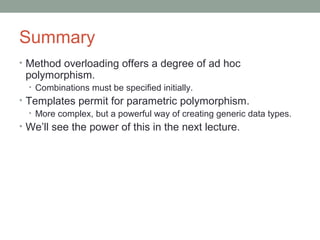This document discusses C++'s templating system as a way to implement parametric polymorphism, contrasting it with Java's generics. It covers the functionality of function and class templates, illustrating their flexibility in creating data structures like stacks without specific type dependencies. The document concludes by highlighting the benefits of templates, such as avoiding the need to write multiple versions of similar code and ensuring type safety.
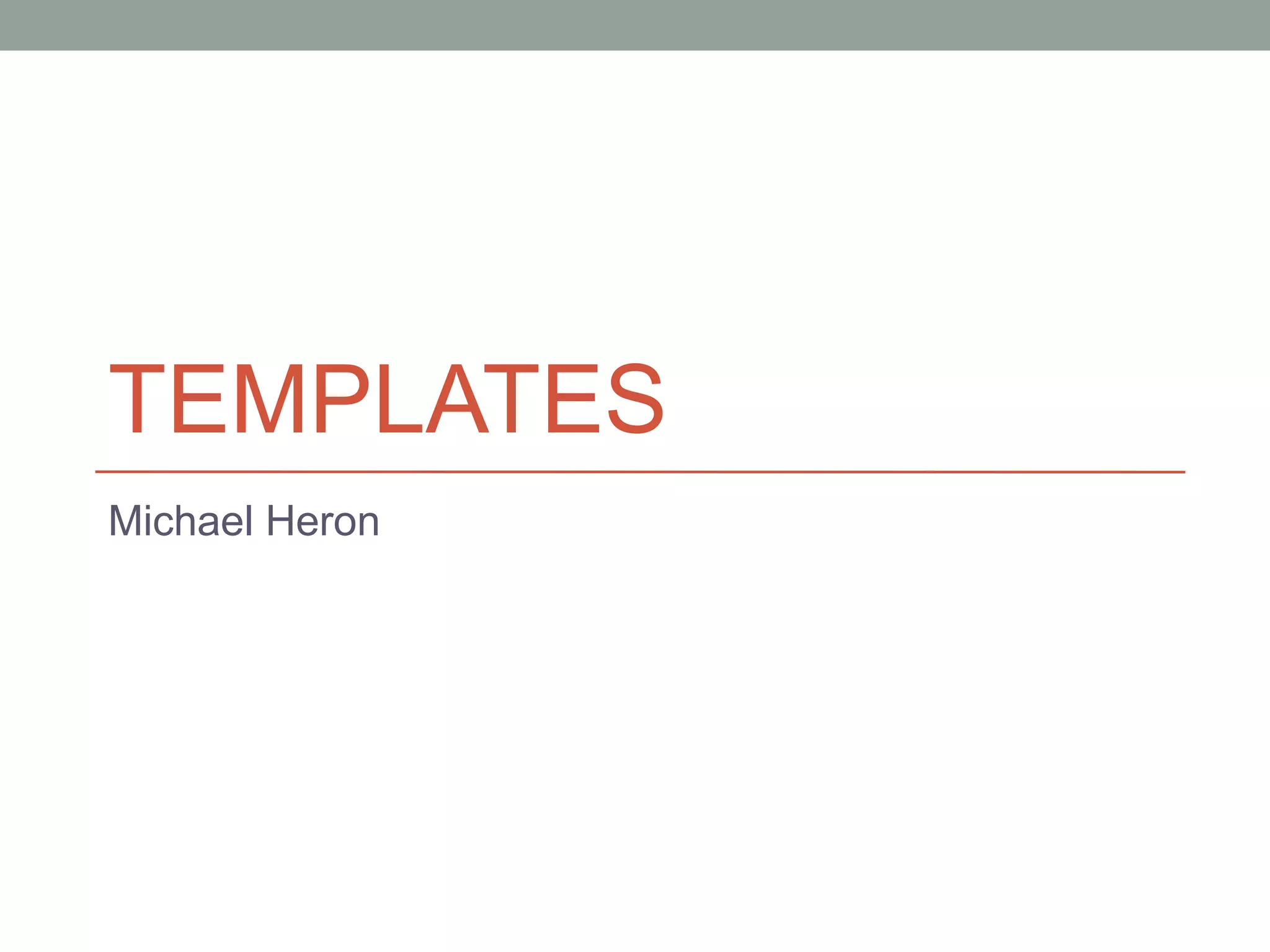
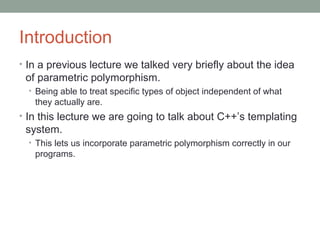
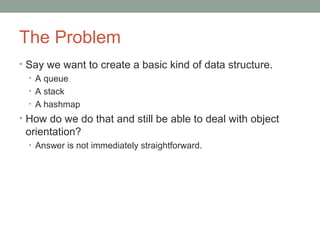
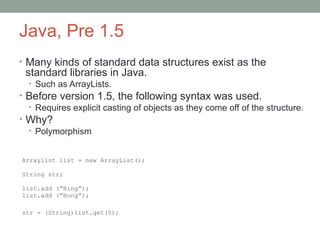
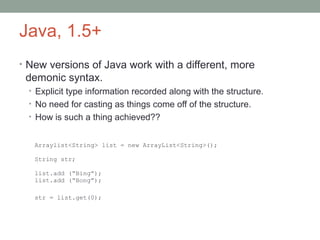
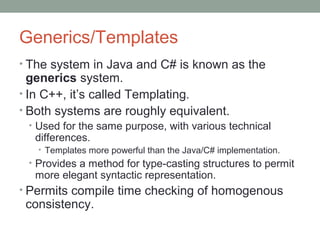
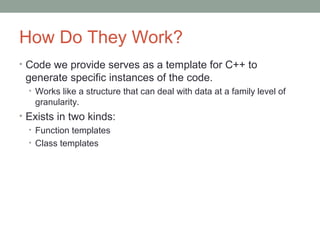
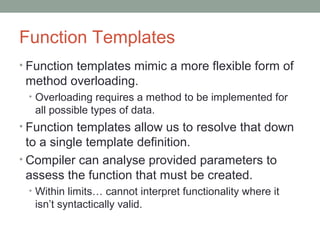
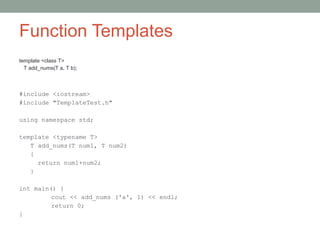
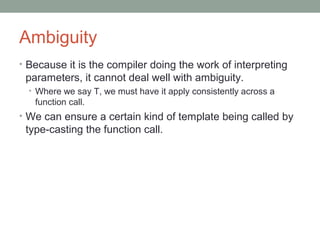
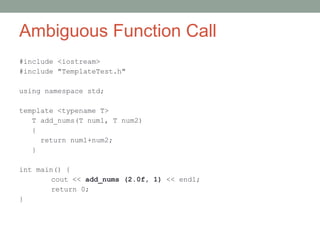
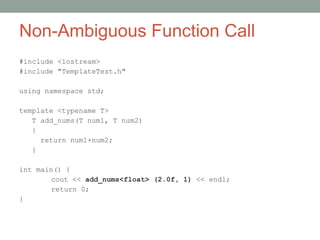
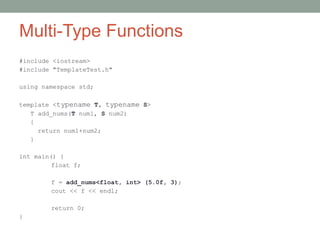
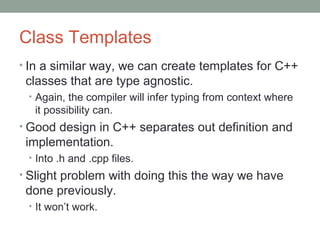
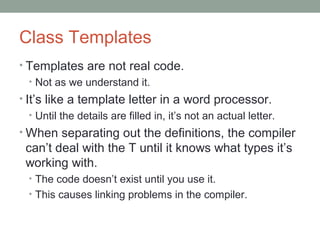
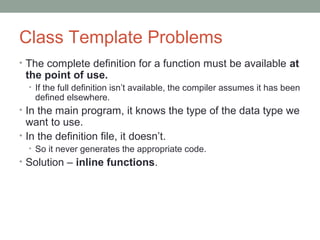
![A Stack Template
template <typename T>
class Stack {
private:
T *stack;
int current_size;
public:
Stack() :
stack (new T[100]),
current_size (0) {
}
void push(T thing) {
if (current_size == 100) {
return;
}
stack[current_size] = thing;
current_size += 1;
}](https://image.slidesharecdn.com/14-templates-140618181721-phpapp01/85/2CPP15-Templates-17-320.jpg)
![A Stack Template
T pop() {
T tmp;
current_size -= 1;
tmp = stack[current_size];
return tmp;
}
void clear() {
current_size = 0;
}
int query_size() {
return current_size;
}
~Stack() {
delete[] stack;
}
};](https://image.slidesharecdn.com/14-templates-140618181721-phpapp01/85/2CPP15-Templates-18-320.jpg)
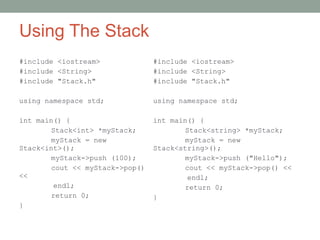
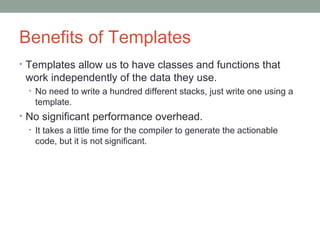
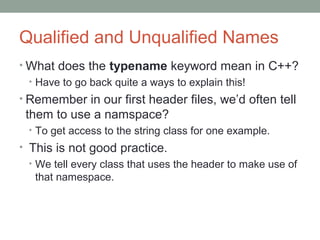
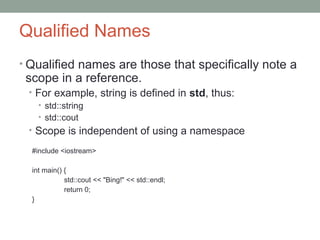
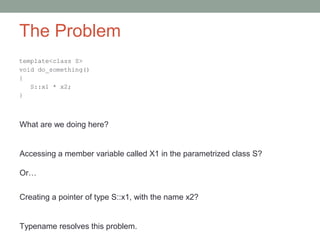
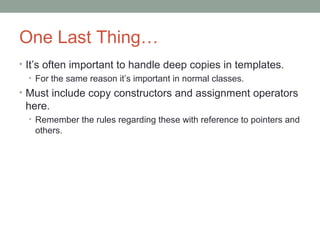
![Deep Copies on Templates
Stack<T>(const Stack<T> &s) {
current_size = s.current_size;
stack = new T[100];
for (int i = 0; i < 100; i++) {
stack[i] = s.stack[i];
}
}
Remember these are designed to work on value objects and must be explicitly
de-referenced when working with pointers, like so:
Stack<string> *myStack, *stack2;
myStack = new Stack<string>;
stack2 = new Stack<string>(*myStack);](https://image.slidesharecdn.com/14-templates-140618181721-phpapp01/85/2CPP15-Templates-25-320.jpg)
![Deep Copies on Templates
Stack<T>& operator= (const Stack<T> &s) {
current_size = s.current_size;
delete[] stack;
stack = new T[100];
for (int i = 0; i < 100; i++) {
stack[i] = s.stack[i];
}
return (*this);
}](https://image.slidesharecdn.com/14-templates-140618181721-phpapp01/85/2CPP15-Templates-26-320.jpg)
